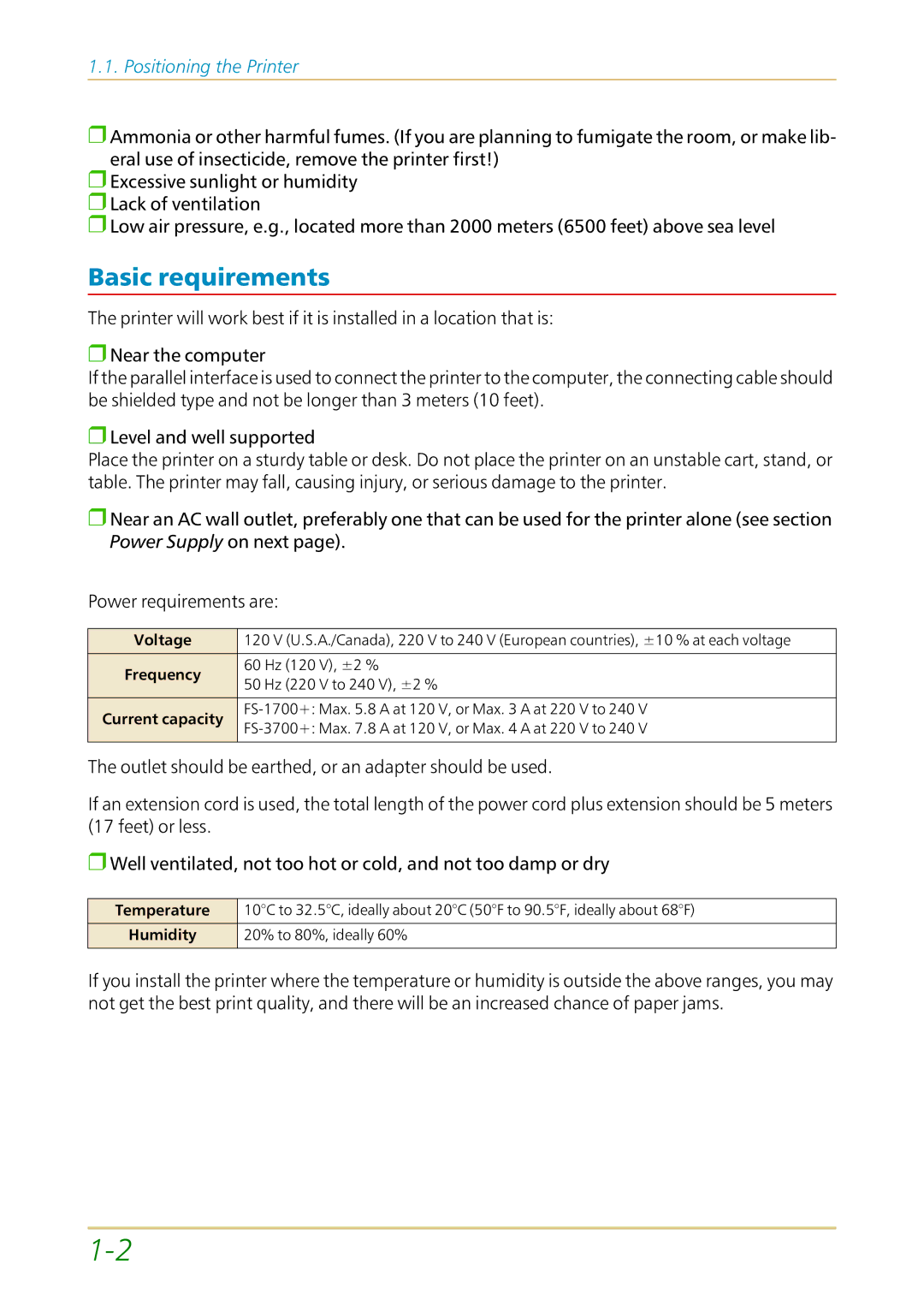
1.1. Positioning the Printer
❒Ammonia or other harmful fumes. (If you are planning to fumigate the room, or make lib- eral use of insecticide, remove the printer first!)
❒Excessive sunlight or humidity
❒Lack of ventilation
❒Low air pressure, e.g., located more than 2000 meters (6500 feet) above sea level
Basic requirements
The printer will work best if it is installed in a location that is:
❒Near the computer
If the parallel interface is used to connect the printer to the computer, the connecting cable should be shielded type and not be longer than 3 meters (10 feet).
❒Level and well supported
Place the printer on a sturdy table or desk. Do not place the printer on an unstable cart, stand, or table. The printer may fall, causing injury, or serious damage to the printer.
❒Near an AC wall outlet, preferably one that can be used for the printer alone (see section Power Supply on next page).
Power requirements are:
Voltage | 120 V (U.S.A./Canada), 220 V to 240 V (European countries), ±10 % at each voltage | |
Frequency | 60 Hz (120 V), ±2 % | |
50 Hz (220 V to 240 V), ±2 % | ||
| ||
Current capacity | ||
| ||
|
|
The outlet should be earthed, or an adapter should be used.
If an extension cord is used, the total length of the power cord plus extension should be 5 meters (17 feet) or less.
❒Well ventilated, not too hot or cold, and not too damp or dry
Temperature | 10°C to 32.5°C, ideally about 20°C (50°F to 90.5°F, ideally about 68°F) |
Humidity | 20% to 80%, ideally 60% |
|
|
If you install the printer where the temperature or humidity is outside the above ranges, you may not get the best print quality, and there will be an increased chance of paper jams.
